The 2018 AASLH History Leadership Institute
Sunday, October 28 through Saturday, November 17, at the Indiana Historical Society
How do you help professionals in historical organizations reflect on the right questions they should be asking both of themselves and of their organizations? That was the purpose of the History Leadership Institute, produced by the American Association for State and Local History and organized by my friend and former colleague, Max A. van Balgooy. He invited me to facilitate a session, “History Leaders Responding to Public Tragedies: The Right Questions?”
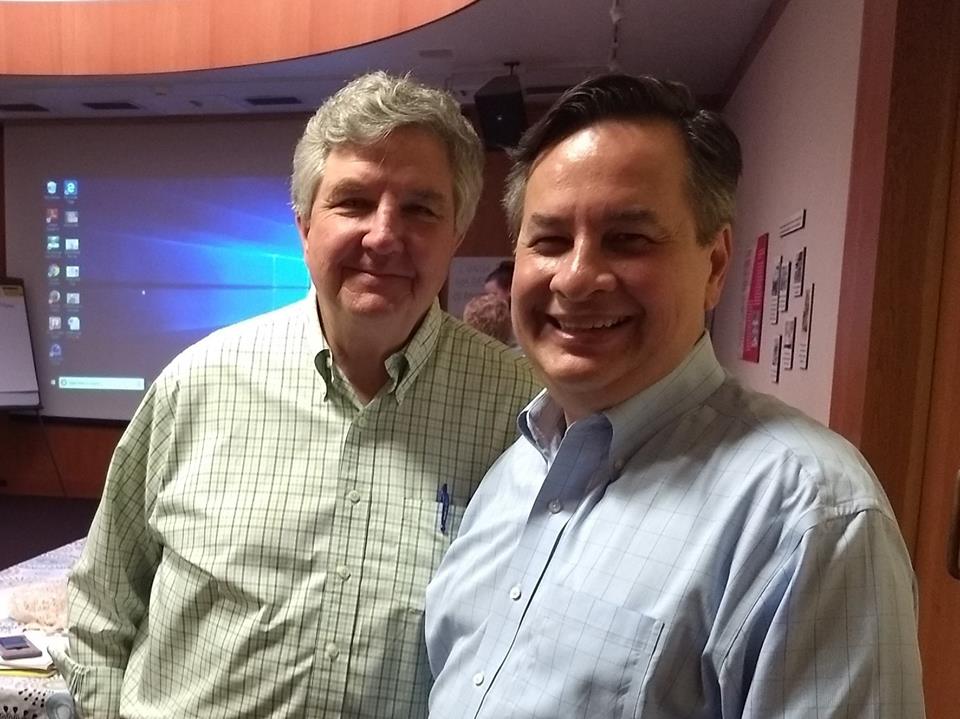
L-R George W. McDaniel and Max van Balgooy prepare for their session at the 2018 History Leadership Institute.
Thanks to AASLH and the American Alliance of Museums, the question has drawn national attention. For reference, I looked to various readings, to my experience volunteering with Mother Emanuel AME Church and working with other Charleston organizations, learning from curator Pam Schwartz in Orlando and archivist Eric Lidji in Pittsburgh, speaking at conferences, and to two of my essays that were recently published on the subject.
Among public tragedies, there have been two constants: hatred on the part of the killer and surprise in the community. So, as a vital part of the community, what questions should historical organizations be asking?
Professionals came from across the nation to produce the questions that they thought historical organizations should be asking before a tragedy, immediately afterwards, and long term in order to promote healing. My maxim was “None must. All may. Some should.” My job was not to provide answers but to encourage questions; at the conclusion, the participants produced a thoughtful list for historical organizations to consider (credit: the AASLH History Leadership Institute).
Nineteen history professionals participated in our session:
- Stephanie Boyle, Dumbarton House, Washington, DC
- Cathy A. Burton, Great American Songbook Foundation, Carmel, IN
- Christina M. Claassen, Whatcom Museum, Bellingham, WA
- Elaine Heavey, Massachusetts Historical Society, Boston, MA
- Guinn Hinman, State Historical Society of North Dakota, Bismarck, ND
- Nicholas J. Hoffman, Missouri Historical Society, St. Louis, MO
- Kimberly F. Kelderhouse, Leelanau Historical Society, Traverse City, MI
- Heidi Kloempken, Minnesota Historical Society, St. Paul, MN
- Jennifer McElroy, Minnesota Historical Society, St. Paul, MN
- Patrick McGuire, Elkhart County Historical Museum, Mishawaka, IN
- Sarah E. Morin, Conner Prairie, Fishers, IN
- Trisha Nelson, History Nebraska, Lincoln, NE
- Casey Pfeiffer, Indiana Historical Bureau, Indianapolis, IN
- Jonathan Sebastian, Fischer Farm/Bensenville Park District, Bensenville, IL
- Daniel Shockley, Indiana Historical Society, Indianapolis, IN
- Mary Mikel Stump, Washington State Historical Society, Tacoma, WA
- JaMarcus Underwood, Jack Hadley Black History Museum, Thomasville, GA
- Jennifer Van Haaften, Wisconsin Veterans Museum, Madison, WI
- Jessica R. Van Landuyt, Atlanta History Center, Atlanta, GA
Altogether, there were 44 facilitators involved with 34 sessions and field trips over three weeks, making the 2018 AASLH History Leadership Institute one of the most complex and enriching professional development programs in the country.
For more about our session, please visit Max’s excellent blog.
Additional resources for further inquiry and learning can be found here and here.
Below is a look at our hard-working group in action. It is always fun and refreshing to be with other professionals and to see Max again and Jessica Van Landuyt from the Atlanta History Center, where I used to work and still have friends.
As the professional association for history practitioners and institutions throughout the country, AASLH takes on a major role providing leadership and advocacy for the history field. By building coalitions around key issues, developing and monitoring best practices for the field, and advocating on behalf of the history community with public officials at the national, state, and local levels, AASLH strives to advance the field and to better position history as a critical component of American life.
About The History Leadership Institute
The History Leadership Institute is the best professional development opportunity for leaders at history organizations of all types and sizes. Since 1959, it has provided history professionals the tools, ideas, and connections to enhance their ability to lead institutions and the field.
Max van Balgooy is president of Engaging Places, a design and strategy firm that connects people and historic places. He has worked with a wide range of historic sites on interpretive planning, including James Madison’s Montpelier, Andrew Jackson’s Hermitage, Preservation Society of Newport County, State of Delaware, and Arroyo Seco Parkway National Scenic Byway and has served as a commissioner and as staff in historic preservation at local and national levels, including a decade as the Director of Interpretation and Education at the National Trust for Historic Preservation. He serves as the director of the Seminar for Historical Administration, is a professor in the Museum Studies Program at George Washington University, leads workshops on house museums for the American Association for State and Local History and recently completed Interpreting African American History and Culture at History Museums and Historic Sites for Rowman & Littlefield. These experiences provide a rich source of ideas for EngagingPlaces.net, where he blogs regularly about the opportunities and challenges facing historic preservation and house museums.
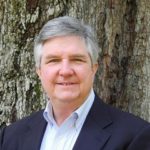 George W. McDaniel, Ph.D., is President of McDaniel Consulting, LLC, a strategy firm that helps organizations use history to build bridges within itself and to its broader constituents. The company’s tag line, “Building Bridges through History,” is grounded in McDaniel’s personal beliefs and his experience in site management, preservation, education, board development, fundraising, and community outreach. Rather than using history to divide us, he strives to help organizations use history, especially local history, to enhance cross-cultural understanding and to support local museums, preservation, and education. Dr. McDaniel recently led volunteer efforts with Emanuel AME Church and historical organizations in Charleston to use historic preservation to enhance racial reconciliation and healing. McDaniel is also the Executive Director Emeritus of Drayton Hall, a historic site in Charleston, SC, owned by the National Trust for Historic Preservation.
George W. McDaniel, Ph.D., is President of McDaniel Consulting, LLC, a strategy firm that helps organizations use history to build bridges within itself and to its broader constituents. The company’s tag line, “Building Bridges through History,” is grounded in McDaniel’s personal beliefs and his experience in site management, preservation, education, board development, fundraising, and community outreach. Rather than using history to divide us, he strives to help organizations use history, especially local history, to enhance cross-cultural understanding and to support local museums, preservation, and education. Dr. McDaniel recently led volunteer efforts with Emanuel AME Church and historical organizations in Charleston to use historic preservation to enhance racial reconciliation and healing. McDaniel is also the Executive Director Emeritus of Drayton Hall, a historic site in Charleston, SC, owned by the National Trust for Historic Preservation.
A frequent writer, speaker, and facilitator about such issues, he can be reached at gmcdaniel4444@gmail.com or through his website at www.mcdanielconsulting.net.
Header Image: Participants in our session entitled “History Leaders Responding to Public Tragedies: The Right Questions?” at the 2018 AASLH History Leadership Institute
All other images courtesy of the author unless otherwise noted.
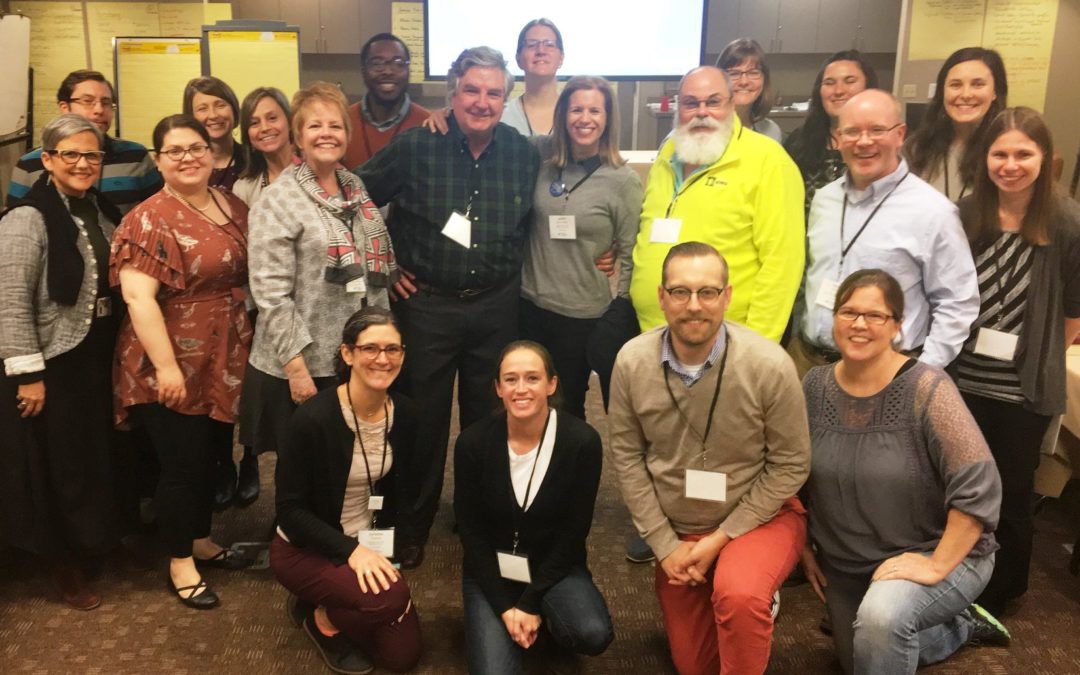
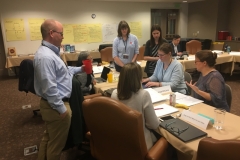
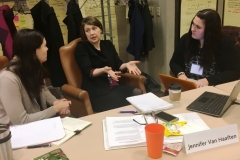
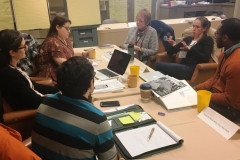
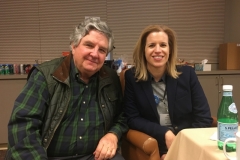
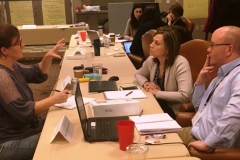
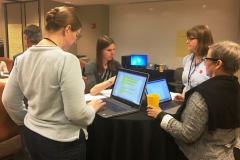
 McDaniel Consulting LLC is a strategy firm that helps organizations use history to build bridges within itself and its broader constituents.
McDaniel Consulting LLC is a strategy firm that helps organizations use history to build bridges within itself and its broader constituents.